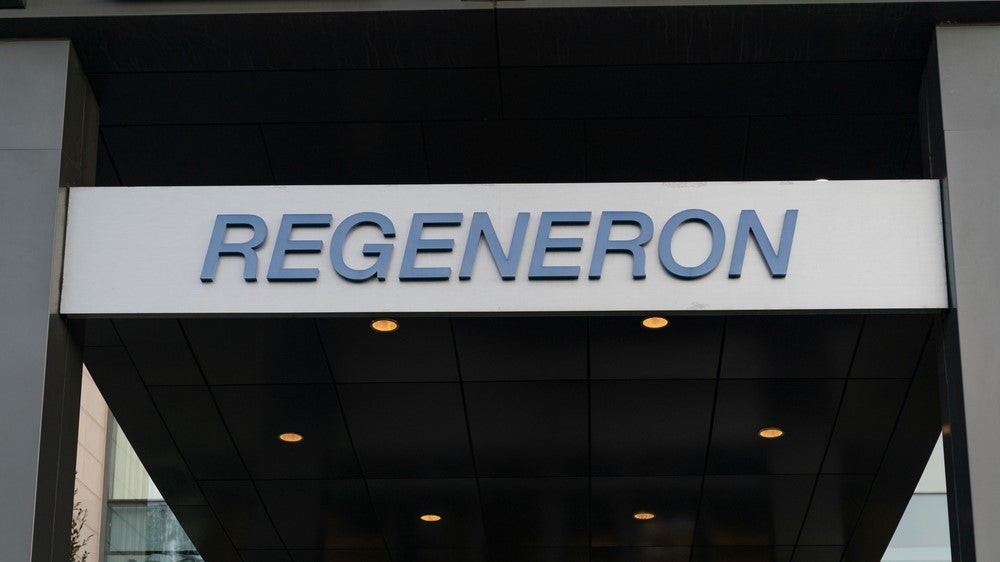
Regeneron Pharmaceuticals has received US Food and Drug Administration (FDA) approvals for two of its drugs, namely Veopoz (pozelimab-bbfg) and high-dose Eylea (aflibercept) in the last few days.
Veopoz is the first drug which has been approved by the FDA for CD55 deficiency with hyperactivation of complement, angiopathic thrombosis, and protein-losing enteropathy or CHAPLE disease in patients aged one year and older.

Discover B2B Marketing That Performs
Combine business intelligence and editorial excellence to reach engaged professionals across 36 leading media platforms.
CHAPLE is a genetic immune disease caused by mutations in the CD55 gene causing overactivation of the complement system. This results in impaired inflammatory response and causes symptoms such as abdominal pain, recurrent infections, oedema, and diarrhoea.
Veopoz, a monoclonal antibody, targets and inhibits the protein involved in the activation of the complement system, the C5 complement factor.
Additionally, Eylea HD, which is being codeveloped by Regeneron and Bayer, was granted approval to treat ophthalmologic disorders such as wet age-related macular degeneration (wAMD), diabetic retinopathy (DR) and diabetic macular oedema (DME).
Veopoz’s approval was based on the data from the open-label Phase II/III trial (NCT04209634) consisting of 10 participants, who all achieved the primary outcome of normalised serum albumin at 12 weeks, with the patients maintaining these levels over 72 weeks of treatment.

US Tariffs are shifting - will you react or anticipate?
Don’t let policy changes catch you off guard. Stay proactive with real-time data and expert analysis.
By GlobalDataAt 48 weeks, only one patient required an albumin transfusion, compared to the period of 48 weeks before starting treatment, when five patients required a total of 60 transfusions. Additionally, two patients were hospitalised for seven days in 48 weeks after starting treatment, compared to nine patients requiring hospitalisation for a cumulative 268 days in the period before starting treatment. Veopoz is administered through a 30mg/kg intravenous loading dose, followed by weekly weight-based subcutaneous doses.
The most commonly observed adverse events were upper respiratory tract infection, fracture, urticaria (itchy rash), and hair loss.
Approved therapies for rare diseases have increased in numbers in recent years, with GlobalData forecasting at least 35 US FDA approval in the rare disease areas in 2023.
GlobalData is the parent company of Pharmaceutical Technology.
Veopoz is also being investigated in other complement system-mediated diseases, including paroxysmal nocturnal haemoglobinuria (PNH) and myasthenia gravis. The combination therapy of Veopoz and Alnylam Pharmaceuticals’ cemdisiran, a small interfering RNAi C5 inhibitor, is being investigated in an open-label Phase II trial (NCT04888507).




